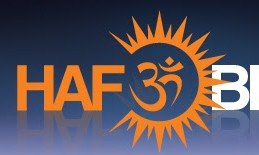America
Retain or convert: HAF agrees with India on redefining right to religious freedom

Leaders at the Hindu American Foundation (HAF) welcomed remarks from India’s Prime Minister, Narendra Modi, on his government’s commitment to religious freedom in India. The prime minister addressed an audience gathered to celebrate the canonization by Pope Francis of two Indian Catholics, Kuriakose Elias Chavara and Mother Euphrasia, just yesterday. During his address, Modi touched upon several themes, including Hinduism’s teachings of religious pluralism and mutual respect, as well as the need for these values in an age of increased religious conflict around the globe.
The Foundation was especially encouraged by Mr. Modi’s specific mention of the “right to retain religion†as an integral part of religious freedom. HAF, alongside others, has long advocated for the specific addition of the right to retain one’s religion into extant international law. It claims that while the right to adopt and change religion were included in both the United Nation’s Universal Declaration of Human Rights Article 18 and the International Covenant on Civil and Political Rights (ICCPR), the absence of the right to retain is a major source of conflict.
“Until the right to retain one’s religion is part of the international legal framework and understood to be essential to constructive interfaith engagement, we will continue to witness the annihilation of entire cultures and civilizations, “ said Suhag Shukla, HAF’s Executive Director. “The Yezidis, Native Americans, Polynesians, Africans, European pagans, as well as Hindus in Bangladesh and Pakistan are amongst the scores of faithful who have paid a heavy price. Their untold stories mask the physical, psychological, and social toll resulting from violence, exploitation, and denigration perpetrated by those who claim that only their faiths own the truth about God.â€
HAF holds that without a categorical inclusion of the right to retain one’s religion, predatory proselytization becomes a cause for conflict and violence. Even some separatist terror groups in the Northeast of India and groups pushing for the death penalty for LGBTs in a number of African nations are funded by Western evangelical organizations focused on “soul harvests,†church planting, and exporting their culture wars.
The Foundation’s leaders noted that recent campaigns by Hindu groups in India to reclaim converts, while having attracted vast media attention, paled in comparison to the proselytizing efforts of American, Australian, and European missionary groups. “Nonetheless, we believe that coercion and exploitation have no place in matters of any religion,†Shukla elaborated.
Citing the Vedas, Hinduism’s ancient scripture; the famous Hindu monk, Swami Vivekananda; and Nobel Laureate, Rabindranath Tagore, Modi also lauded India’s historical record of not only welcoming and accepting people of different faiths, but fostering an environment in which people were free to worship as they chose. He encouraged Indians of all backgrounds to uphold these traditions.
“Too many of the conflicts we see around the world stem from an attitude of religious exclusivism and supremacy, “ said Padma Kuppa, a member of HAF’s Board of Directors. “The prime minister’s evoking of Hinduism’s inherent religious pluralism should be a signal to Indians and Hindus of all backgrounds of the positive role we can play in bringing about peace between peoples.â€

























